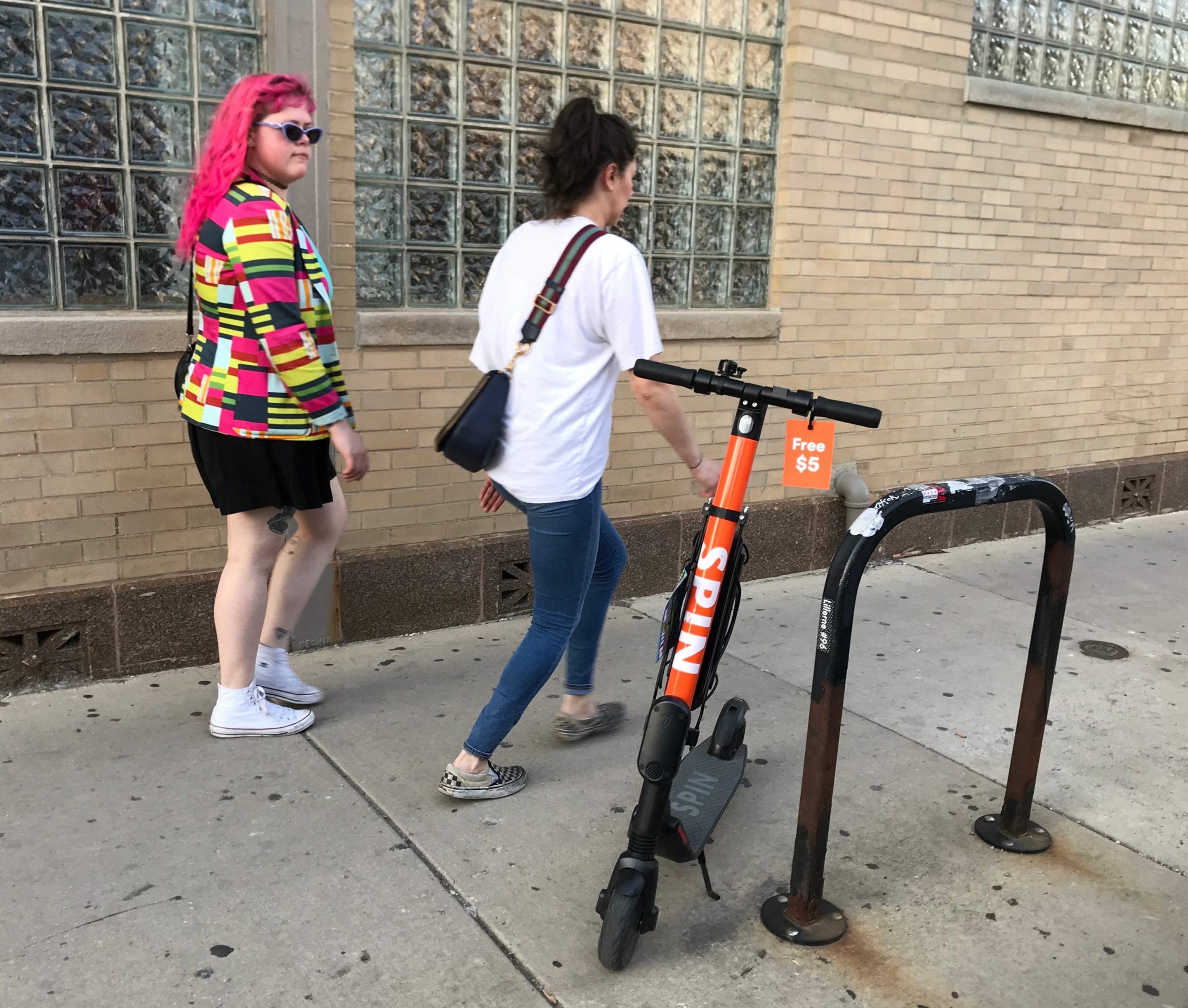Chicago's dockless electric scooter pilot, which launched on June 15, is buzzing along, with 60,000 trips taken in the first week, according to city officials. Last night I appeared on WTTW's "Chicago Tonight" show with Candice Xie, CEO of the Chicago-based scooter company VeoRide to discuss how things are going. You can watch the segment here.
I discussed the potential benefits of scooters: replacing car trips; improving transportation access in underserved communities; creating a new constituency for car-free lanes, and more. But safety remains a major question, since many of the devices seem to be prone to crashes on potholed street, and they're not highly visible to drivers, especially from the side. A recent study of scooter injuries in Austin, Texas, found that about 5/6 of the cases didn't involve a driver, and about a third of the crashes occurred on a rider's first trip.
A little over two weeks into the pilot, Chicago has already seen a fair number of scooter-related crashes. Notably, Allyson Medeiros, 32, was biking in Wicker Park when a wrong-way scooter rider struck him, inflicting grievous facial injuries, and fled the scene.
Here are the latest local scooter-related injury numbers during the pilot, based on a WBBM report on cases at Rush Hospital, plus calls that Streetsblog's Igor Studenkov and I made to just about all of the hospitals in or near (within about a mile of) the West and Northwest side pilot area. A few of the hospitals haven't responded to inquiries yet.
- Saints Mary and Elizabeth Hospitals (Wicker Park): "About ten" ER visits
- Northwestern Hospital (Streeterville): "Around six" ER visits
- Rush Hospital (Illinois Medical District): Two patients requiring surgery
- Mount Sinai Hospital (North Lawndale): Two ER visits
- Cook County Hospital (Illinois Medical District) One patient requiring surgery (Medeiros)
- University of Illinois Hospital (Illinois Medical District): No ER Visits
So as of yesterday, there were 21 cases within about two weeks. While it's possible some of the injuries involved privately owned scooters, it's likely the vast majority of the riders were using rental scooters. If we double the number of trips taken in the first week to 120,000 rides, that comes to one ER visit per 5,714 trips. That would be in the same ballpark as the Austin, Texas, figure of about one hospitalization per 5,000 rides, although those figures probably underestimate injuries because they don't count injuries seen by a regular doctor.
So while the Chicago scooter pilot doesn't seem to be resulting in a bloodbath yet, the numbers do suggest that some caution is warranted. If you take a test ride, make sure you're familiar with how the gizmo works, ride sober, stay off the sidewalks, travel in the direction of traffic, and consider wearing a helmet, since the devices seem to be quite a bit riskier than using bike-share.




